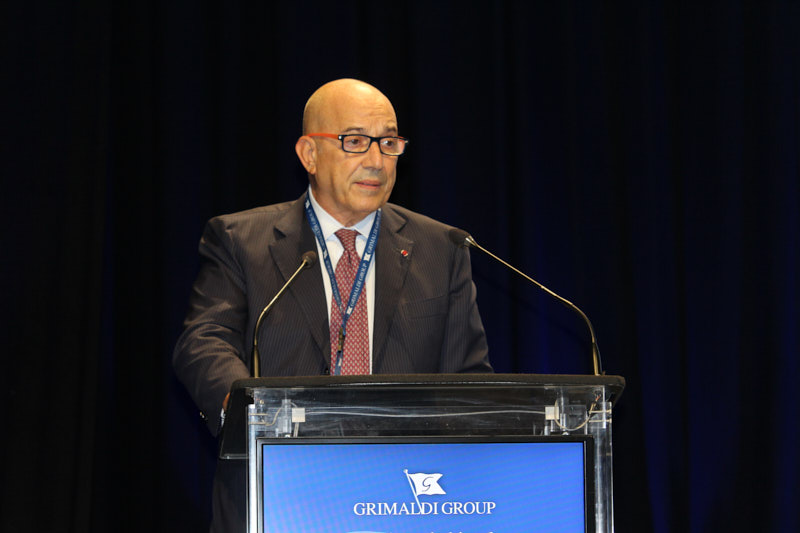Your next order will be for car carriers: is the time ripe?
Our upcoming new project will involve 5 highly flexible roro/car carrier units with a load capacity of 8/9,000 lane meters each. We will sign the new order by next summer. It took us slightly longer because we wanted to improve our project, and the investment will amount to at least 70 million dollars per vessel.
We devoted a few more months to research and development because our future depends on new technologies. This new series of ships will be able to transport ordinary rolling cargoes as well as trains, project cargoes, heavy parts etc…, and they will be deployed mainly on the route between North America, Northern Europe and the Mediterranean, but also for trades with West Africa and South America.
Will your newbuildings be actually ammonia-ready as you announced during the latest Euromed Convention?
Definitely, if ammonia were produced in a clean way. But at present this is impossible. The next newbuildings will consume 50% less compared to the previous series and we will build ships which produce less emissions thanks to hydrodynamic solutions, reduced energy consumption, digitalization, optimization of routes and other special actions.
Don’t you think that very large ships are posing greater challenges than expected for your group?
The deployment of large ships always requires onshore infrastructure adaptations. It is part of the progress. This is exactly what happened also for container ships. As concerns the adaptation of draughts, quays and yards, ports are slow to implement and carry out the necessary upgrades. Some general cargo terminals are no longer needed and port authority presidents should reward those who handle more traffics. Very often, terminals remain focused on general freight traffics which have now become marginal. Nowadays “big is beautiful”, while the emphasis on small businesses is no longer relevant.
Both in the shipping and in the automotive sector there was a significant consolidation of trademarks, which are still merging. The world is growing, and it no longer see things from a national perspective, rather it only has a global perspective.
You are about to be appointed as President of the International Shipping Council, what do you expect for your term of office?
I was appointed president last year and next June I will probably be confirmed for presidency. In the upcoming years the shipping sector will have to change all ship engines. This extraordinary time in history for maritime transport is comparable to the propulsion shift from sail to engine. I am glad to be at the helm of the International Shipping Council and I regard this opportunity as a privilege. It is both a great challenge and a big responsibility.


